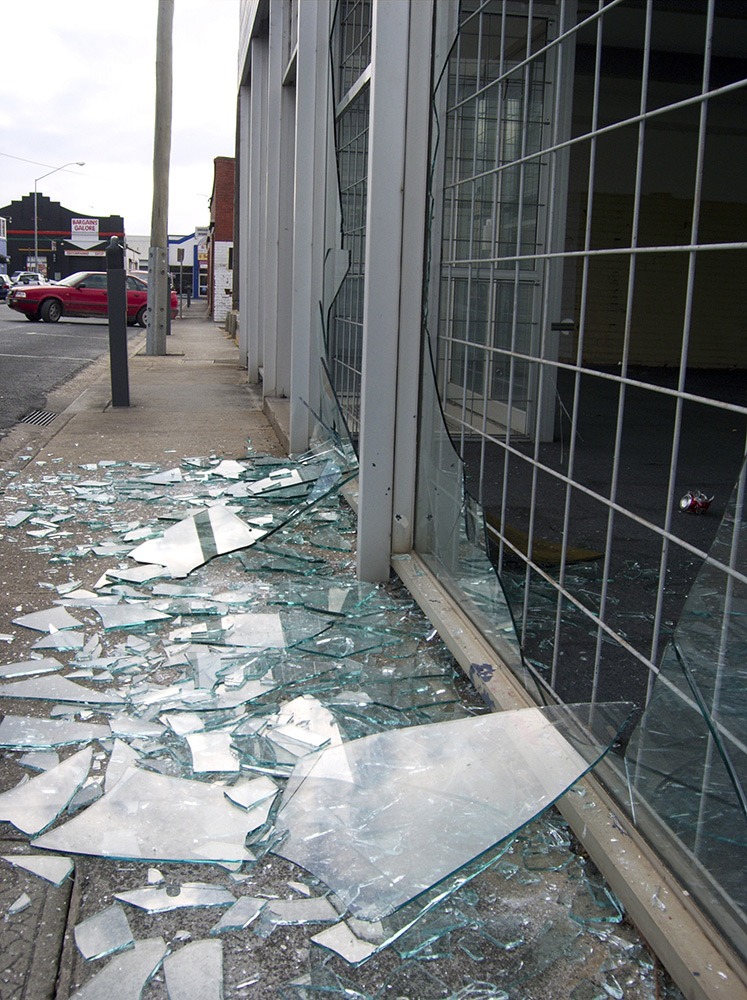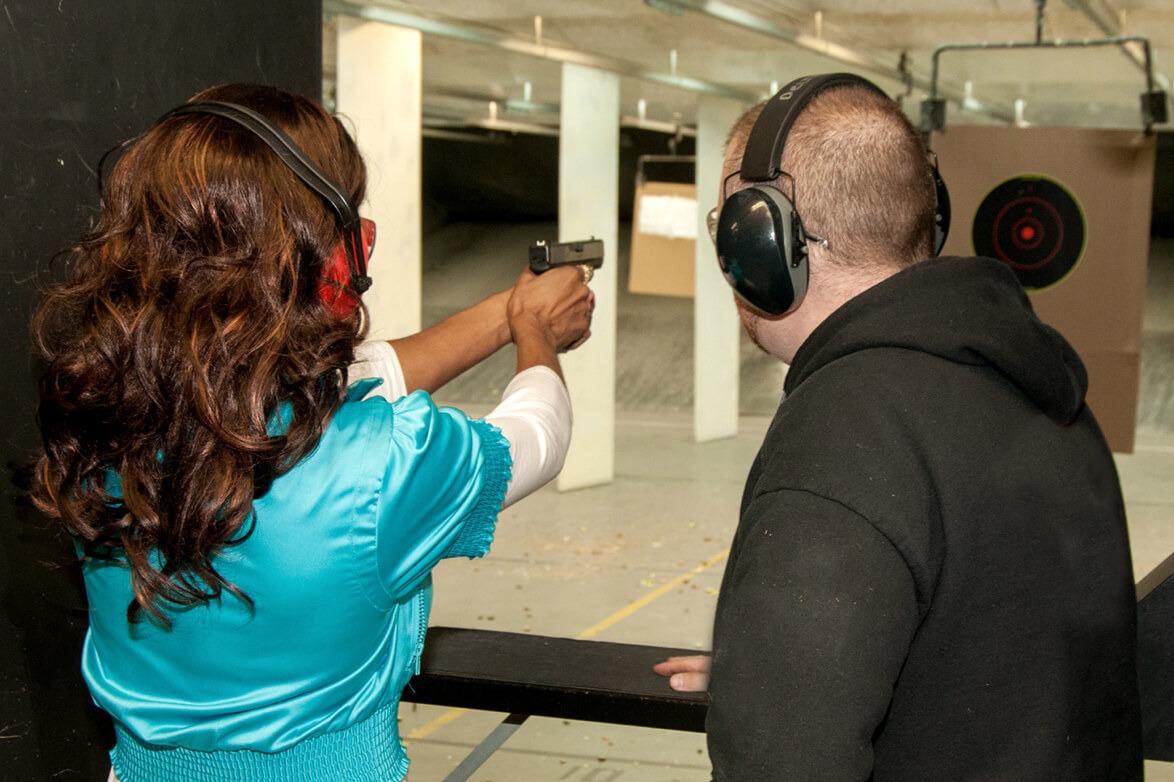 Back to News
Back to News
September 27, 2017
Managing Your FFL After a Crisis Hits
Whether it’s a hurricane, fire, burglary, medical emergency, range accident or other type of disaster or incident that compromises your ability to operate your business, having a crisis management plan in place should be a top priority for your FFL. That crisis management plan should include preparedness, training, recovery and rebuilding. Having these four pieces planned, documented and rehearsed will ensure you are back in business in a relatively short time frame after a crisis strikes. “Winging it” just doesn’t work and will not account for the unexpected variables that may come into play.
 Here’s a real-life example of an incident I was called on for support several years ago, one that had an unfortunate, yet preventable outcome. A firearms retailer experienced a burglary by way of a smash-and-grab in which four juveniles used a stolen vehicle to crash through the front doors of his store. This resulted in more than $44,000 in property damage to the interior and exterior building, while only five handguns valued at $2,300 were stolen. Although the thieves were quickly apprehended and firearms recovered, the store was left in shambles. What happened next was completely unexpected.
Here’s a real-life example of an incident I was called on for support several years ago, one that had an unfortunate, yet preventable outcome. A firearms retailer experienced a burglary by way of a smash-and-grab in which four juveniles used a stolen vehicle to crash through the front doors of his store. This resulted in more than $44,000 in property damage to the interior and exterior building, while only five handguns valued at $2,300 were stolen. Although the thieves were quickly apprehended and firearms recovered, the store was left in shambles. What happened next was completely unexpected.
Due to the fact the storefront was demolished, resulting in a full rebuild, the store had to be emptied of all inventory and equipment, leaving only the store’s shell. Temporary labor had to be hired, and everything was loaded into storage units and secured offsite. The FFL and the landlord ran into disputes over whose insurance would pay for repairs. Then there were additional disputes over what contractors would make the repairs. Arguments followed regarding adding or not adding additional exterior security to deter future burglaries. Then neighboring tenants complained to the landlord about contractors parking vehicles and dumpsters … and the list goes on.
Sadly, what should have been a 45-day rebuild turned into a 90-plus day event. More troubling than the rebuild itself was the fact that the FFL’s loyal customers had to shop elsewhere while the store was closed for construction (and once those customers went elsewhere, it was very difficult to win them back). Good employees were laid off or found employment elsewhere. Business interruption insurance was in place for only 30 days, resulting in the owner incurring more than two months of out-of-pocket expenses while the business was closed. Due to a lack of crisis planning for this unexpected incident, it wasn’t long before this FFL liquidated his business.
In light of current disasters in Houston and Florida, every business owner should consider the following and create a solid crisis management plan that would support business continuance. Such a plan will include the following:
-
Prepare
Discuss with your leadership team what incidents are likely to occur. If your business is in a coastal area, for example, you can you be affected by hurricanes, flooding, power outages, etc. If you’re located inland, you have tornadoes to worry about. If you are on the West coast, you have earthquakes to consider. For those in the mountains, you may have wildfires or severe snow as a challenge, and if your store is located in an inner city, you’re more susceptible to burglary, robbery and the looting or building damage that occurs with civil unrest. Once you’ve identified your most likely disasters, you’ll want to discuss what kind of a plan, general or specific, you’ll need to deal with such issues. I recommend starting with a general plan that is rehearsed and known, then add details for more specific types of incidents later.
I urge you to document your specific procedures as part of your preparation process and identify roles for each member of the team in its simplest form, basically a “who does what” type of checklist so you’re ready when the “stuff” hits the fan. Your documentation should include a list of primary repair and service vendors, your insurance claim contact information and public utility contacts. A regularly updated master list of all employees and their emergency contacts should be included in your emergency binder for quick reference.
Keep in mind that some crises are foreseeable, such as approaching wildfires, hurricanes or civil unrest. In those cases, you should also have a plan for securing your firearms if you must vacate. Ask yourself: Will your A & D records be affected? Can those records be backed up and secured offsite? Should you contact your ATF regional office for guidance? Following the incident, who can assist quickly in conducting an inventory if necessary?
Regularly review your insurance policies and lease terms. Your insurance policy should cover property damage, as well as business interruption for a defined period that adequately correlates to the incident. You should also review and understand your insurance policy deductibles and calculate to ensure they are manageable in the event a crisis strikes. You will also want to discuss your crisis management plans with your landlord, insurance broker and any regular contractors you use ahead of time to encourage preferential treatment and establish good relationships out front.
-
Training
This can take place in discussion form in your store’s break room or other suitable place inside or outside your location. Training should be ongoing and ahead of any trending incidents, especially those weather- or media-related, that impact your area. If it’s hurricane season, talk about management during a severe storm. If burglaries are on the rise and in the news, review procedures for responding to alarm calls and burglary recovery.
This kind of training is critical with new team members. Take time during new-hire orientation to review emergency egress, fire exits, tornado sheltering, first aid kits, hold-up alarm devices, how to respond if robbed, etc. An important part of this training should also include how to respond if the media shows up at the location, what to say (and more importantly what not to say) and store contact information that can be provided to the press.
Need help with an emergency training plan? Consult your local emergency responders, the ATF and NSSF for materials and ask about free training sessions that may be available in person or via the internet.
-
Recovery
At the time of any unusual incident there will be much anxiety, stress and even confusion after the dust settles. With training and coordination, the team should be able to rally and manage through the recovery process and stay on track as described in your planning documentation. If all goes well, the insurance adjusters will be timely, efficient and support your financial needs. Keep patience in mind throughout. Your employees likely don’t want to be out of work anymore than you want them to be, but when a disaster strikes that leaves them without their home, transportation and perhaps hundreds of miles away due to an evacuation, you’re going to have to work with them just as much as they have to work with you.
-
Rebuilding
The story I told at the beginning is a true one and a good example of how so many things can go wrong when a disaster occurs. My best advice in your rebuilding phase is to expect the unexpected. Having managed crises through hurricanes, fires, tornadoes, robberies and burglaries, I can personally attest to the fact that your best planning will incur speedbumps and potholes along the way and that having patience, a cool head, a good team and a sound, well-documented crisis management plan will help you succeed.
NSSF’s Store Security Audit team is standing by to assist you with any physical or operational security issue you may have. For more information, visit the Retailers section of the nssf.org site. NSSF also partners with a variety of security product vendors. Log in to the members-only side of nssf.org to discover more.
You might also be interested in: FFLs, Hurricanes and Rusted Firearms—What You Need to Know
About the Author
John Bocker is an NSSF Security Consultant Team Member and the Managing Director at JB Group, LLC, based in Denver, Colorado. JB Group is a firearms and business security and strategy consulting organization specializing in ATF and FFL compliance and protecting FFL’s against unexpected losses resulting from internal and external crimes, internal control failures and risk exposures. Visit www.jbgroupco.com, call (720) 514-0609, or email [email protected] for more information.









